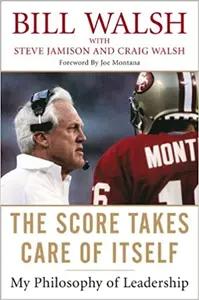The Righteous Mind: Why Good People Are Divided by Politics and Religion
By Jonathan Haidt
Category
CultureRecommended by
"The Righteous Mind" by Jonathan Haidt offers a fascinating exploration of moral psychology, dissecting the foundations of our ethical beliefs and the intricate ways in which they shape our societies. By delving into the complexities of human morality, Haidt thoroughly examines how political and religious ideologies differ across cultures, enlightening readers about the diverse perspectives that guide our moral intuitions.
Drawing from his extensive research, Haidt emphasizes that righteous judgment is seldom based on rationality alone, but rather emerges from a combination of innate intuitions and learned experiences. He introduces the concept of moral foundations, which are underlying principles such as care/harm, fairness/cheating, loyalty/betrayal, authority/subversion, and sanctity/degradation. These foundations serve as the building blocks for both individual and collective moral reasoning, influencing our opinions on various issues from politics to religion.
Haidt argues that understanding the moral frameworks of others is crucial for fostering greater empathy and mutual understanding in a highly polarized world. Exploring the evolutionary origins of morality, he challenges the notion of moral superiority, urging readers to transcend their biases and consider alternative perspectives. The book also examines the profound impact of morality on political divisions and highlights how different moral matrices drive the divergent beliefs held by conservatives, liberals, and libertarians.
"The Righteous Mind" presents a thought-provoking analysis of moral psychology, shedding light on the intricate web of emotions, intuitions, and cultural influences that shape our sense of right and wrong. Haidt's engaging writing style and well-supported arguments encourage readers to explore the vast dimensions of morality and contemplate the power of empathy in resolving conflicts and bridging social divides.
Drawing from his extensive research, Haidt emphasizes that righteous judgment is seldom based on rationality alone, but rather emerges from a combination of innate intuitions and learned experiences. He introduces the concept of moral foundations, which are underlying principles such as care/harm, fairness/cheating, loyalty/betrayal, authority/subversion, and sanctity/degradation. These foundations serve as the building blocks for both individual and collective moral reasoning, influencing our opinions on various issues from politics to religion.
Haidt argues that understanding the moral frameworks of others is crucial for fostering greater empathy and mutual understanding in a highly polarized world. Exploring the evolutionary origins of morality, he challenges the notion of moral superiority, urging readers to transcend their biases and consider alternative perspectives. The book also examines the profound impact of morality on political divisions and highlights how different moral matrices drive the divergent beliefs held by conservatives, liberals, and libertarians.
"The Righteous Mind" presents a thought-provoking analysis of moral psychology, shedding light on the intricate web of emotions, intuitions, and cultural influences that shape our sense of right and wrong. Haidt's engaging writing style and well-supported arguments encourage readers to explore the vast dimensions of morality and contemplate the power of empathy in resolving conflicts and bridging social divides.
Share This Book 📚
More Books in Culture

The Coddling of the American Mind
Greg Lukianoff & Jonathan Haidt

Brotopia
Emily Chang

The True Believer
Eric Hoffer

Wanting
Luke Burgis

Give and Take
Adam Grant

Masters of Doom
David Kushner

The Holy Bible
Various

The Moment of Lift
Melinda Gates

21 Lessons for the 21st Century
Yuval Noah Harari

The Better Angels of our Nature
Steven Pinker

The Diversity Myth
Peter Thiel & David Sacks

Winners Take All
Anand Giridharadas

Between The World And Me
Ta-Nehisi Coates

Conspiracy
Ryan Holiday

Decoded
Jay-Z

Play It Away
Charlie Hoehn

San Fransicko
Michael Shellenberger

Sex at Dawn
Christopher Ryan

The Death and Life of Great American Cities
Jane Jacobs

The New Jim Crow
Michelle Alexander

The Storytelling Animal
Jonathan Gottschall

The Watchman's Rattle
Rebecca Costa

Who Is Michael Ovitz
Michael Ovitz

A Heartbreaking Work of Staggering Genius
Dave Eggers

A Short History of Myth
Karen Armstrong

Amusing Ourselves to Death
Neil Postman

Art of the Living Dead
Adrian Hanft

Bass Culture
Lloyd Bradley

Be Here Now
Ram Dass

Beyond Religion
Dalai Lama
Popular Books Recommended by Great Minds 📚

The Internet of Money Volume 1
Andreas Antonopolous

The Courage To Be Disliked
Ichiro Kishimi

The Moment of Lift
Melinda Gates

The Autobiography of Benjamin Franklin
Benjamin Franklin

Surely You're Joking Mr. Feynman
Richard Feynman

High Growth Handbook
Elad Gil

Measure What Matters
John Doerr

Creativity, Inc.
Ed Catmull

The Coddling of the American Mind
Greg Lukianoff & Jonathan Haidt

Guns, Germs, and Steel
Jared Diamond

The Almanack of Naval Ravikant
Eric Jorgenson

Thinking, Fast and Slow
Daniel Kahneman

Meditations
Marcus Aurelius

Einstein
Walter Isaacson

Blitzscaling
Reid Hoffman

The Power of Habit
Charles Duhigg

Wanting
Luke Burgis

The Three Body Problem
Cixin Liu

Bad Blood
John Carreyrou

Influence
Robert Cialdini

Becoming Steve Jobs
Brent Schlender

Masters of Doom
David Kushner

Destined For War
Graham Allison

The Sovereign Individual
James Dale Davidson & William Rees-Mogg

The Bitcoin Standard
Saifedean Ammous

Originals
Adam Grant

High Output Management
Andrew Grove

Sapiens
Yuval Noah Harari

Hopping Over The Rabbit Hole
Anthony Scaramucci

The Score Takes Care of Itself
Bill Walsh
